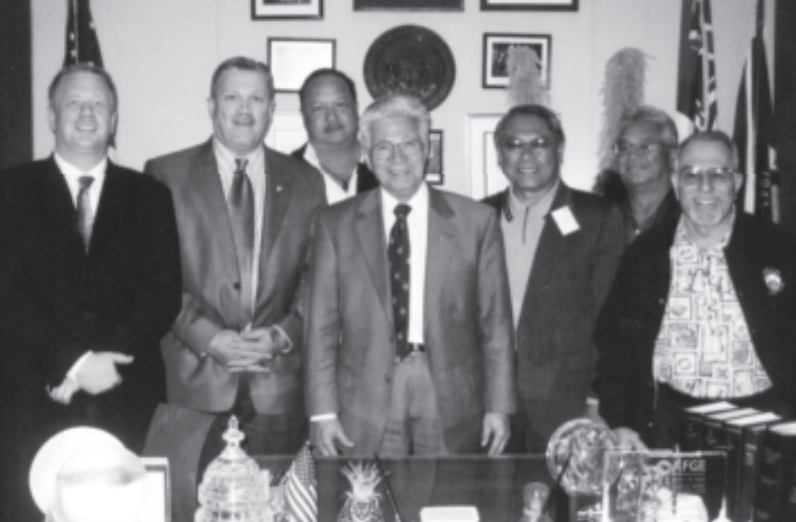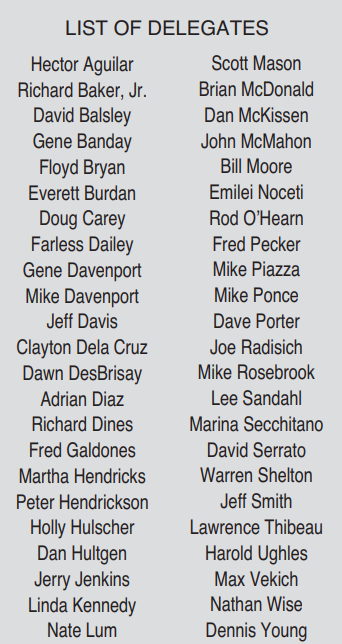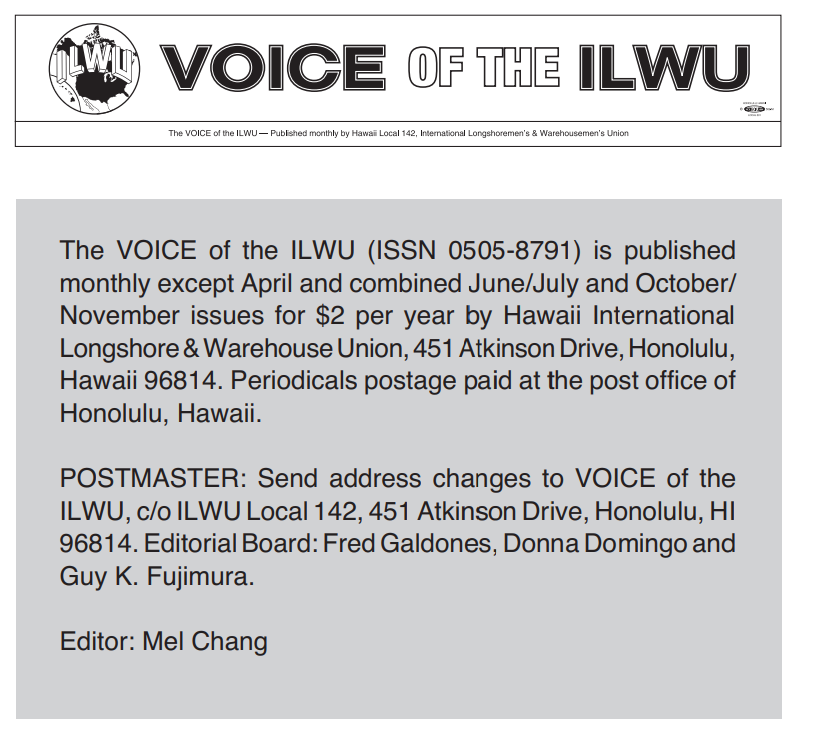It could not have occurred at a more opportune time. More than 50 members of the ILWU met in Washington, D.C. from March 13-17 to lobby members of Congress on issues that matter to working families. Following on the heels of the Dubai Ports World controversy, politicians were more prepared to listen to the agenda of the ILWU.
Led by Legislative Action Committee members Max Vekich, Dawn Desbrisay, Lawrence Thibeaux, and Southern California leaders Mike Ponce and Joe Radisich, the delegates studied the issues of concern to the ILWU and lobbied very hard to convince Congress to adopt our agenda.
“The ILWU has been talking about port security for several years, yet it seemed Congress finally heard what we have been saying,” said Dawn Desbrisay, Legislative Action Committee member from the Columbia River Region. “Democrats and Republicans were eager to hear what ILWU had to say and, even though we have been talking about the inspection of empties and inspecting seals for several years, it seemed like everyone agreed with us on this trip.”
The Conference was centered around a number of core ILWU 2006 ILWU Legislative Conference issues:
• Port security
• Green ports/Saving lives campaign
• Pension protection
• Health Care
• Employee Free Choice Act
• Service Contract Act/ Alcatraz contract

Members of the Hawaii delegation meet with Senator Daniel Akaka (center), who has been endorsed by the ILWU as a candidate with a proven commitment to work for working families. (L-r) ILWU Washington Representative Lindsay McLaughlin, Local 54 Secretary-Treasurer Gene Davenport, Oahu Division Unit 4201 (longshore) Chairperson Nate Lum, Akaka, Local 142 President Fred Galdones, Kauai Division Director Clayton Dela Cruz, and Hawaii Division Director Richard Baker Jr.
The ILWU invited an impressive list of policy makers to address the union about port security. Dabney Hegg, Democratic staffer for the Senate Commerce Committee and Shay Hancock, Legislative Assistant to Senator Patty Murray addressed the Conference its first day on two bills they helped draft, S. 1052, The Transportation Security Act, and S. 2008, the Green Lane Cargo Maritime Security Act. The two senior staffers heard from longshore workers on a number of port security topics, including the need to exclude labor disputes from what the Homeland Security Department (DHS) views as a transportation security incident. Current law includes a felony conviction on a “transportation security incident” to be a reason to exclude an individual from working in the ports. This change in the law is of the highest priority for the ILWU.
The Maritime Security Act and TWIC
Representative Frank LoBiondo (R-NJ) spoke about the need to fully implement the Maritime Transportation Security Act. He expressed exasperation that port security has not been adequately funded since Congress passed legislation to address the problem in 2002. He also spoke on the controversial issue of background checks and Transportation Worker Identification Cards (TWIC). Although the Maritime Transportation Security Act of 2002 mandated TWIC cards for workers, the DHS has failed to implement this mandate. Since the Conference, the DHS has announced plans to issue regulations this year and to implement background checks and TWIC cards in the 25 most vulnerable ports by March 2007. The ILWU continues to work on this critical issue in advocating that only crimes related to terrorism should be a matter of concern to the DHS. We are demanding a fair appeals process and if longshore workers are subjected to background checks, then every individual with access to terminals, including truck drivers, must be subjected to the same checks.

Due process on appeals
The Chairman of the House Homeland Security Committee, Peter King (R-NY), spoke at a Congressional reception sponsored by the ILWU. King agrees with the ILWU that longshore workers deserve an independent Administrative Law Judge (ALJ) to hear appeals when a worker is denied a TWIC card by the Transportation Security Administration. It appears that an ALJ process may become law given that a provision is included in the Coast Guard Reauthorization Act that mandates an Administrative Law Judge process for port workers denied a transportation security card. The ILWU has lobbied hard for fair due process for our members and it looks like the hard work is finally paying off.
Longshoremen identify security problems
During the Conference, ILWU members packed a House Homeland Security Committee hearing on port security legislation. Subcommittee Chair Dan Lungren (R-CA) and Rep. Jane Harman (D-CA) introduced the SAFE Ports Act and scheduled this hearing on the subject. In the hearing, Rep. Lungren referred to his meeting with longshoremen when he discussed the issue of access control. Longshoremen brought to his attention the case of a man who breached security on three occasions and traveled on board ships bound for Los Angeles, Japan, and China. It was not until after the third incident that the Coast Guard asked for longshoremen’s help in keeping this individual off the docks. As a result of information given to her by ILWU members, Representative Loretta Sanchez (D-CA) spoke of the need to address the threat of empty containers, and later introduced an amendment to the bill that sets up a pilot program to evaluate the empty container threat.
Curbing port pollution
Joe Radisich, President of the Southern California District Council spoke on our second topic: saving lives by promoting greener ports. Radisich spoke of working with Los
—continued on next page

